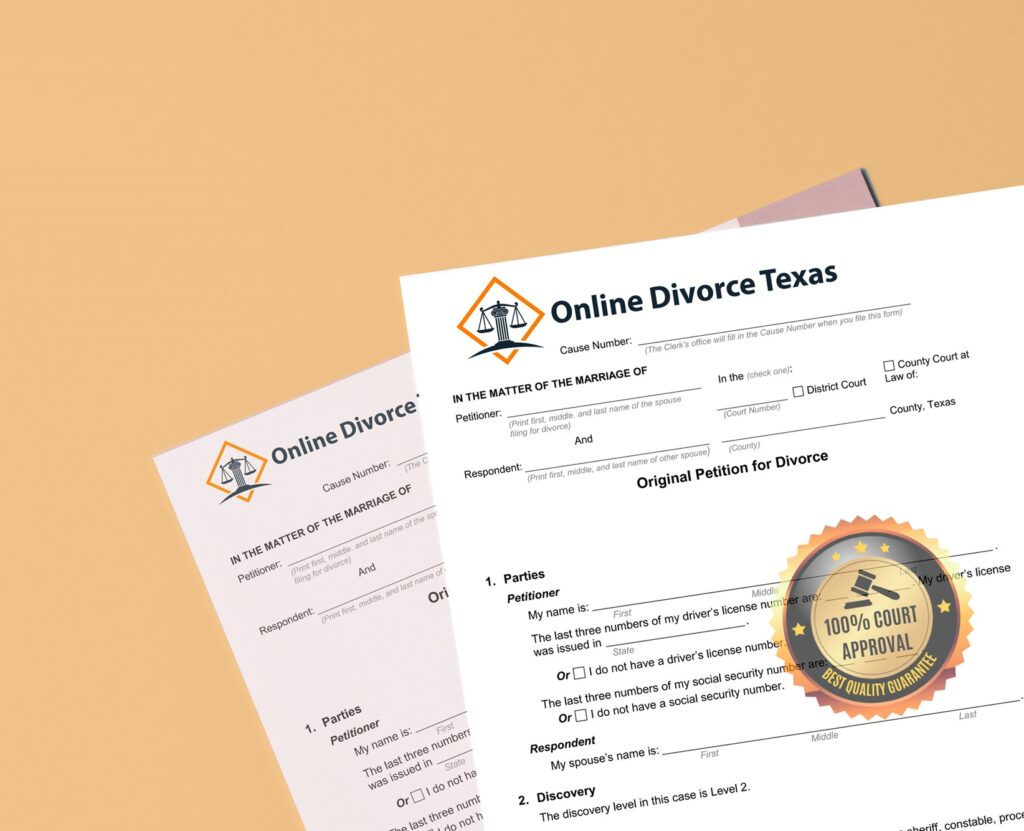Last Updated on May 2024
Mediation in divorce cases may be a great option for some couples. Spouses usually decide to involve a mediator in a marriage dissolution process when they want to resolve disputes and get divorced amicably, quickly, and cost-efficiently. These are the most evident benefits of hiring a certified mediator. There are also other, no less important, advantages of choosing this type of assistance. Below, we will discuss the general concept of divorce mediation, highlighting the pros and cons of the procedure.
How Divorce Mediation Works
Divorce through mediation is a guided collaborative process when a neutral divorce mediator assists spouses in reaching an agreement on all important issues like asset and debt division, child custody and support, alimony, and more.
What happens in divorce mediation? First, partners meet with a mediator for an initial consultation. It is organized to determine whether such assistance may suit them and whether a mediator can help them reach a compromise on case-specific topics. If mediation is a viable option for partners, a mediator will schedule more joint sessions till they negotiate divorce terms. Once done, a couple will be able to write down their agreements in the divorce documents.
When Is Divorce Mediation Recommended?
Divorce mediation is recommended for any couple who can talk to each other about the practical decisions that have to be made when getting divorced. Couples understand better than anyone else their children’s needs, the value of their house, what belongings each wants to keep, and the details of their health insurance plans and needs. A skilled mediator facilitates these discussions of practical matters and makes sure that each issue that needs to be addressed in a divorce is discussed and understood.
Boston divorce mediator Julia Rueschemeyer argues that mediation stands in stark contrast to contested divorce proceedings. A couple’s knowledge of what is best for their children and themselves falls by the wayside. In court, procedure and a judge’s authority take over. A judge does not have time to understand your situation or customize your agreement in ways that work for both of you. The judge simply imposes court orders about how you take care of your children, what happens to your property, and what support is paid and then moves on to their next case.
Divorce mediation is not always recommended. If a couple is so angry that they cannot talk to each other or if there is an extreme power imbalance, e.g., domestic abuse, then divorce mediation is not a good choice. Another situation where mediation is not recommended is if one or both parties are unwilling to openly share financial information. In these cases, the weaker or less financially knowledgeable spouse needs the representation and advocacy of an attorney.

Pros of Divorce Mediation
Is mediation a good idea in divorce? In most cases, it is; many couples do their best to settle disputes outside the courtroom with the help of a skilled mediator. Have a look at the advantages of divorce mediation to decide whether it is worth trying it with your partner. We have listed the core benefits of divorce mediation below.
1. Provides Assistance in Handling the Issues

By contacting a trained mediator, spouses can verbalize and resolve different conflicts that arise during splitting. Usually, a mediator creates a supportive environment where partners can feel comfortable and more tuned for honest and open communication about divorce matters. Mediators are neutral third parties with profound knowledge of how to resolve family conflicts, facilitate dialog between parties, and guide discussions so that people can reach satisfying outcomes.
The main idea of family divorce mediation is to encourage spouses to assess their unique situation properly and come up with solutions that align with the specific needs of the adults and children involved. Instead of empowering the judge to decide on crucial points, they can work out agreements that are best for them. In other words, they can determine how assets will be divided, who will have physical and legal custody, etc.
2. Ensures Easier Consequences for Children

Children are usually affected by their parents’ decision to get a divorce. However, it is possible to mitigate the traumatic effects and consequences of a breakup on kids by maintaining friendly relationships and resolving conflicts without lengthy and tiring litigation. In this case, amicable divorce mediation is a wonderful solution.
When parents participate in mediation and are genuinely interested in reaching a compromise, they can develop parenting plans and custody arrangements focused on meeting kids’ needs. Besides, when adults learn to communicate respectfully with each other, they can preserve such a polite interaction and attitude when handling co-parenting once a divorce is finalized.
3. Resolves the Divorce Faster

Is divorce mediation worth it? Surely, especially if you want to speed up your divorce process. When partners work with a mediator, they can resolve disputes, formalize their agreements, and apply for an uncontested divorce, which can be finalized relatively quickly. This is hardly possible when litigation takes place and spouses have to adhere to the schedule of hearings defined by the court.
The overall timeframe of an uncontested divorce is several months. Courts usually fast-track uncontested cases when all documents are in order. The judge will review them after the waiting period is over and grant the divorce if everything is correct. Of course, this is an excellent fast alternative to contested proceedings that can last more than a year.
4. Helps to Reduce Expenses Profoundly

By hiring a mediator, it is possible to reduce or totally avoid the expenses of involving attorneys. Both spouses will work with a single mediator and can split payments for the services equally.
Mediators stick to different pricing policies, but two common methods are flat fees and hourly rates. In Texas, average flat rates fluctuate from $2,500 to $4,000. As for average hourly rates, they are in the $250-$350 range. Still, it is much lower than what family lawyers charge. In contested cases, each party may have to spend $12,000+ on lawyers.
5. Keeps Your Personal Information Private

Everything you say during a mediation session is kept private, unlike what happens when documents and testimonials are filed as public records in the course of court hearings. Therefore, you can be sure that financial data, family matters, and personal secrets are fully protected from others.
This factor may be extremely important for people who want to avoid gossip and disapproval from relatives and friends. Besides, public figures often choose mediation to conceal their private life from the public.
Cons of Divorce Mediation
When ending a marriage, mediation in divorce may be a cheaper and more peaceful alternative to hiring a lawyer for settling disputes between spouses. However, it may be unsuitable for some couples. Check out the downsides to divorce mediation to make an informed decision about whether to opt for mediation or not.
1. No One Will Be Able to Negotiate on Your Behalf

In traditional divorce proceedings, each party has a lawyer who is responsible for representing them and negotiating in their name. During mediation, each spouse has to engage in negotiations on their own. Such a task can cause confusion and anxiety for some people, especially if they don’t understand how to advocate for their interests.
So, the final settlement can be imbalanced if one party agrees to terms that are not beneficial for them due to the lack of understanding or negotiation skills. In the future, serious conflicts may appear because of such decisions.
2. Legal Advice Is Not Provided by Mediators

A mediator isn’t allowed to give legal advice even if they have the needed expertise. Their major role is to facilitate a dialog for spouses to reach an agreement. Unfortunately, sometimes partners don’t fully comprehend their rights, obligations, and legal implications that stem from the decisions they make during a mediation. That’s why they may feel confused and upset after the judge signs the final decree.
3. A Fair Outcome Is Not Guaranteed by Mediation

Mediation is very helpful for encouraging spouses to cooperate and compromise. However, it doesn’t guarantee an equitable agreement on the divorce terms. One spouse may be more assertive or even manipulative, making the second party feel pressed to agree to the suggested terms of divorce. Besides, uncontrollable emotions can sometimes affect discussions and lead to unfair decisions.
Since a mediator guides communication without offering formal legal guidelines for dividing property, establishing child support, and other matters, divorcing partners risk overlooking something important and ending up with agreements unfair to one party.
4. The Cost of Mediation Is Higher Than That of a DIY Divorce

Mediation costs much less than a lawyer’s assistance, but it is still more expensive than a purely DIY divorce. The more mediation sessions you need, the higher your expenses become. Every couple should decide whether paying a mediator is worth it. A DIY divorce is probably a wonderful option, but it requires handling all stages of a divorce absolutely alone. If you have at least one unresolved conflict, it may be a good idea to address a mediator for help first, reach an agreement, and then take further steps without third-party guidance.

Create your free account to see if you’re eligible to file for online divorce in Texas. Complete all paperwork from the comfort of your home, with no hidden fees.
5. Power-Imbalanced Couples Should Not Use Mediation

The success of mediation depends on whether participants are on equal terms in their decision-making abilities. For instance, if one partner is an abuser and emotionally surpasses the other spouse, reaching a fair and mutually satisfying agreement will be almost impossible.
Besides, if either spouse misrepresents financial details or is suspected of hiding assets, ruling out disputes and reaching a fair outcome may be impossible, no matter how hard the other spouse and a mediator try.

Julia Rueschemeyer has been practicing family law and divorce mediation full time in Massachusetts since 2003, and have successfully mediated over 1500 cases to completion. She have been admitted to the bar in Pennsylvania, California, New York, and Massachusetts.







